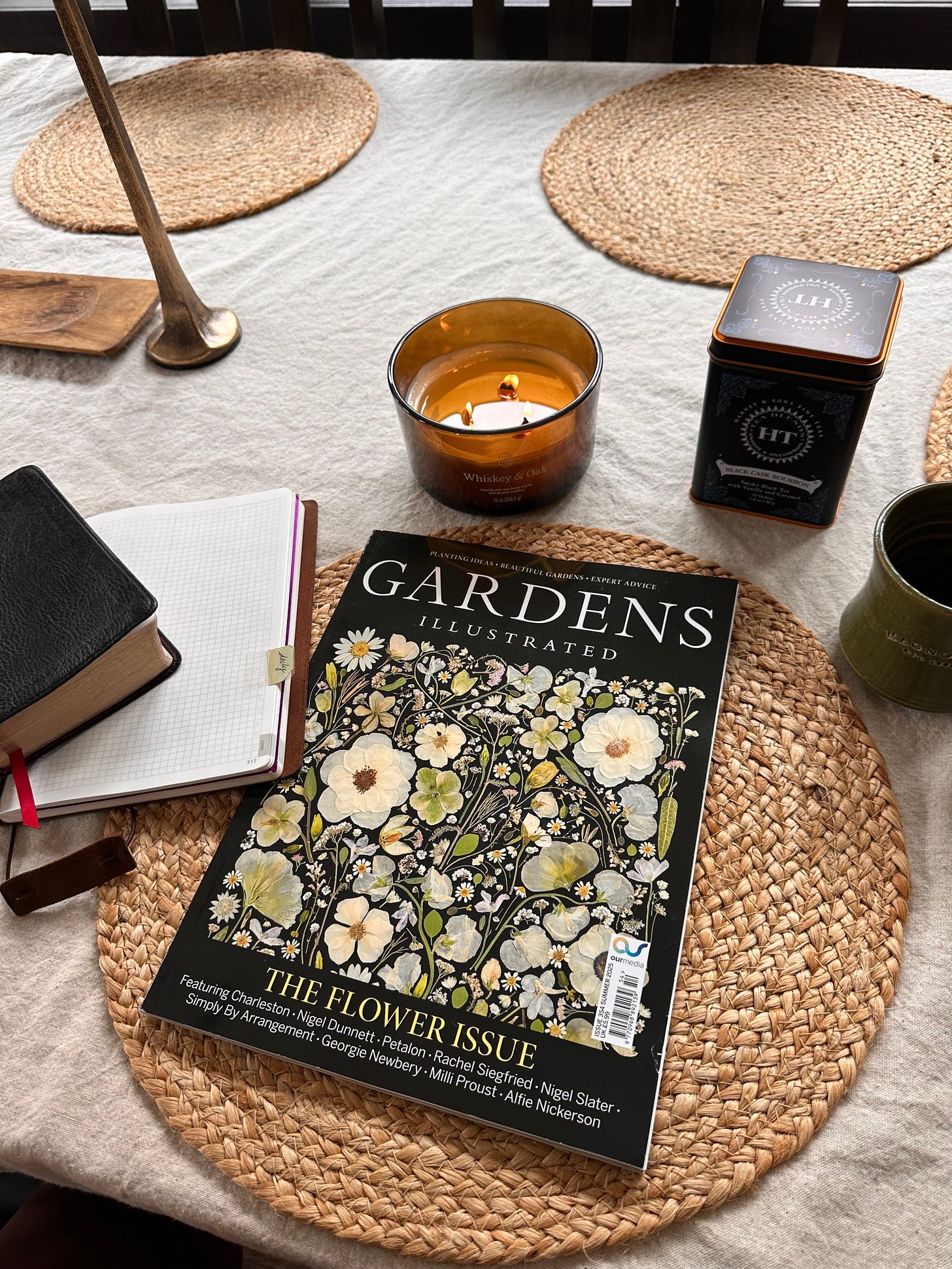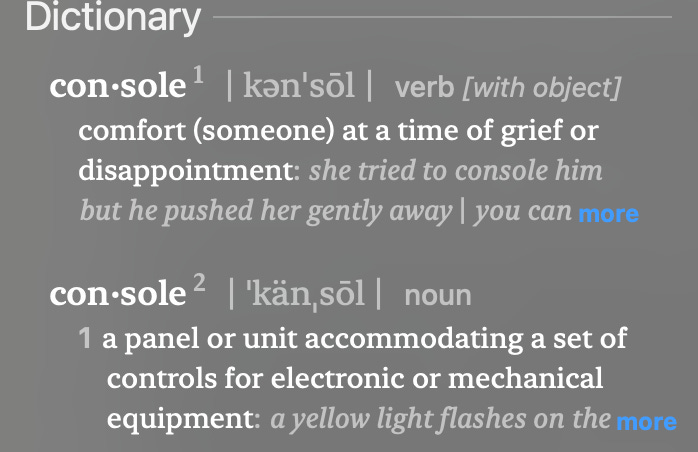You keep using that word.
It's just me—using extraneous words to define things.
I had a rental car for a week that was a similar model to mine, but 6 years newer. There were things about it I liked better, of course—there are more bells and whistles in a newer car, more technology. But the thing I liked most had nothing to do with technology. It was the console. This newer model had more useable space and not so many nooks and crannies for stuff to fall into (it’s the trail mix, always).
At the end of the week I picked up my repaired car and piled back in to familiar surroundings with two tote bags and a backpack, two drinks, multiple reusable shopping bags and collapsible crates, a grocery list, and a to-do list. As I offloaded my mini-kegs of water and coffee, I realized that what I really liked about the rental car was how there was zero clutter in the console. No extra chapstick or five, no miscellaneous keys, no plastic spoons or spare glasses or emergency first aid kits. There was room to put my purse inside the console (marvel of marvels!) because the console was not full of stuff I might need if I ever decided to follow the GPS through the backwoods on a shortcut that ends at a school bus from the (19)90s, where a toothless gold miner lives in his hermitage with a menagerie of menacing pets and pill bottles full of “nuggets” and there are no gas stations and I run out of fuel. If I am ever dumb enough to do such a thing, may I not prolong my survival by digging raisins and peanuts out of the crevices of my car. Just let me go.
The moral of the story is that the console in the rental car was empty, and empty almost always feels more orderly and peaceful to me.
The cure is to eliminate things, then! With writing, scheduling a life, managing a home, and trying to feel better in my body, getting rid of stuff nearly always makes me feel better. Decluttering in all of those areas allows me to see what good things are present, and I appreciate them more.
In my car, I appreciate space for necessities, but I don’t need a month’s supply. Use a spoon; replace a spoon. Empty a chapstick; replace a chapstick. I have never ever needed a band aid while out driving around so it makes no sense to have 7 of them in my car, just in case. If I’m bleeding that bad…
I have the opposite problem with words and writing, though. I tend to be sparse with ideas because I edit first, slashing stupid things before they ever have a chance to form into something real. I have always been a strong gatekeeper of my words—which doesn’t mean some dumb or hurtful things don’t slip through now and then. It just means I think way more than I say or write, for better or worse. I have a very strong internal editor and she thinks most of my ideas are dumb.
I’m trying to let the ideas live a little. The trick is to load up every possible thing I might need, sit with all those words for awhile, and then declutter. Like the console of my car, I can only be ruthless after I know what all is actually in there.
I’ve always considered myself to be a peacemaker. I don’t say the truth I want to say because I would rather keep the peace. (I went ahead and wrote that sentence, even though I knew as it formed in my head that it was wrong. I also left all the beginning bits of this essay in place—all the parts about the car and the console and the clutter—so you could have a peek into how the brain of a quiet person works. It’s a long road but I think we have enough fuel. Have some trail mix!)
I’ve been reading Jesus’ sermon on the mount (Matthew 5-7) over and over for the last couple of months, because I want to fill my life with the kind of living that Jesus endorses. Blessed are the peacemakers, Jesus says, and I’ve always felt so smugly blessed in that verse. I have considered myself a peacemaker.
But when I study some cross-references and search for my favorite word, I find that the fruit of righteousness is sown in peace by those who cultivate peace (James 3:18 CSB). Other translations say make peace. Either way, this gives a different spin. Sowing and cultivating and making all involve working with what is already there, and when we’re talking about making peace, the things that are already there are the things I avoid: strife, noise, differences, chaos, too much of everything. Cultivating is a lot of work, a lot of digging and turning over the crusty earth with sharp instruments.
James and Jesus make me think that cultivating peace is not simply removing myself from conflict (dang it). In this video from The Bible Project, Tim Mackie says peacemaking “requires people who are willing to enter into the conflicts of others” and nothing sounds further from the kind of peacemaking I prefer.
But it’s not being a busybody, either. Peacemaking is entering into conflict with the purpose of working towards true peace, which would reflect God’s heart towards all involved. It’s more than just the absence of conflict or the removal of clutter. It’s not just going along to get along. Somewhere in here there’s a balance—carefully chosen words, but grace for the extraneous or careless ones that slip out, too.
There’s something about peacemaking that appeals to me because I long for people to understand each other better, but it is real work and I am real tired. As Priya Jain put it in her essay Debate Me!, “By form and design, the hot take is designed to reduce, where a conversation is meant to expand.” Expanding a conversation means you don’t always reach a solid conclusion on the first or second go. It means you may not land on the same side in the end, or you may even see there are more than two sides—shocker! none of us are right.
I am headed out to my car today, reusable grocery bag in hand, to declutter the poor, maligned console, which is a word with two meanings and I always find that interesting.
Peace is that way, too. I have given it a working definition as the absence of strife, noise, stress, and clutter, and it has consoled me with a hermit-like existence at times. But everything left to itself eventually becomes too much. The weeds need pulled, the ground needs turned over, the car needs cleaned out and life needs the actual work of peacemaking.
I’m not saying I’m ready to jump into that. I’m just saying that I recognize the dual definitions and sometimes “peace” may not mean what I think it means1.
I had to.



Beautifully framed! Thank you for this, Tresta. “Just let me go.” 😂
This is an essay we all need to read and then act on. Thank you, Tresta.